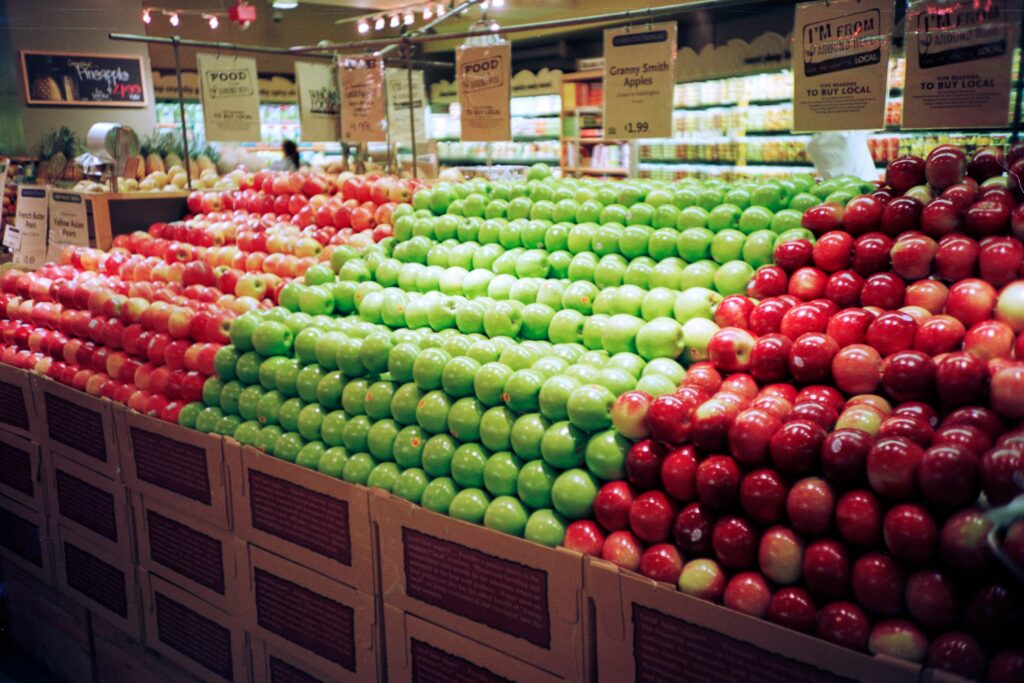The Benefits of Eating Whole Foods

Our modern world is full of quick fixes and instant gratification, including instant meals and a whole pantry’s worth of processed foods. Although processed foods have made life more convenient (in some ways), they’re not ideal. Compared to real, whole foods, most processed and instant foods just don’t provide the real sustenance and nutrition that our bodies need.
What Are Whole Foods?
Whole food is real food. It’s food that is as close as possible to its natural state. It’s an apple, a potato, whole grains, broccoli, or fresh meat not from a deli and not in nugget form. It’s food from nature, as minimally processed as possible. Whole foods are also free of chemical additives and, ideally, bursting with essential nutrients. They’re the opposite of sugary cereal, hot dogs and deli meat, and microwave dinners.
The Benefits of Whole Foods
So let’s talk turkey—or rather, let’s talk about the incredible benefits of embracing diet rich in whole foods.
-
Rich in Nutrients
Whole foods are powerhouses of nutrition. Take red bell peppers, kiwis, or orange slices for example. They’re absolutely packed with vitamin C. While supplements certainly have their place, ultimately nothing can replace getting nutrients in exactly the way nature intended.
-
No Sugar, or Very Little Sugar
Opting for whole foods means ditching added sugar. Yes, some whole foods naturally have sugar, like fruit, but with it comes fiber and a whole host of other good things. Removing processed foods will remove most of the sugar from your diet, and giving your body a break from sugar will greatly help reduce the risk of diabetes, heart disease, and obesity.
-
Happy Heart
Whole foods are loaded with heart-healthy antioxidants, magnesium, and healthy fats, all of which will help to keep your ticker in tip-top shape. Some magnesium-rich foods include pumpkin seeds, almonds, spinach, and even dark chocolate.
-
Fiber, the Nutritional Unsung Hero
Yes, fiber, the nutrient we all know we need but for some reason is so elusive. Fiber is the key to a happy and healthy digestive system, a revved-up metabolism, and that wonderful feeling of fullness that can keep you from snacking throughout the entire day. There are two types of fiber—soluble and insoluble—but in general, fiber-rich foods include lentils and beans, chia seeds, green peas, raspberries, avocados, oats, almonds, and popcorn.
Real Food with Real Savings
Some people claim that whole foods come with a hefty price tag, that eating healthy is a privilege for those who can afford it. While certainly, some whole foods can be expensive, many are well within a reasonable budget. Bananas, apples, oats, potatoes, and many frozen vegetables are affordable, especially when discipline is applied and processed foods are not included on the shopping list.
On the other hand, cereal, crackers, snack bars, chips, and so forth are often expensive considering what you get for your money, and many of these items offer very little nutritional value.
And when you consider the long-term savings on healthcare costs, eating more whole foods is a no-brainer. Very few things are more expensive than being sick. Obviously, healthy foods can’t cure or prevent all forms of illness, but investing in your health today will likely mean fewer medical bills tomorrow.
Something to Remember
Please know that you don’t have to go through your kitchen pantry and throw out everything that comes in a box. Your mental health is just as important as your physical health. Embarking on a journey of healthy eating should be an exciting and positive experience. If you find that the journey is causing stress and anxiety, take a step back and reevaluate your method. Remember that the point is to make improvements, no matter how small. There is no all or nothing.
Also remember that not all processed foods are terrible for you. Many foods are minimally processed and still healthy. Most canned fruits, vegetables, and beans are healthy (but it’s still best to opt for the peaches in water, not syrup.)
Don’t Miss the Mark
At the end of the day, remember that whole foods are ultimately about enjoying life. They’re about being grateful for what nature has given us, and they’re about demonstrating gratitude for our bodies by taking care of them. So embrace life! It’s a tough world, but it’s also a beautiful world. And taking care of yourself by eating whole foods will help to make it even more beautiful.
